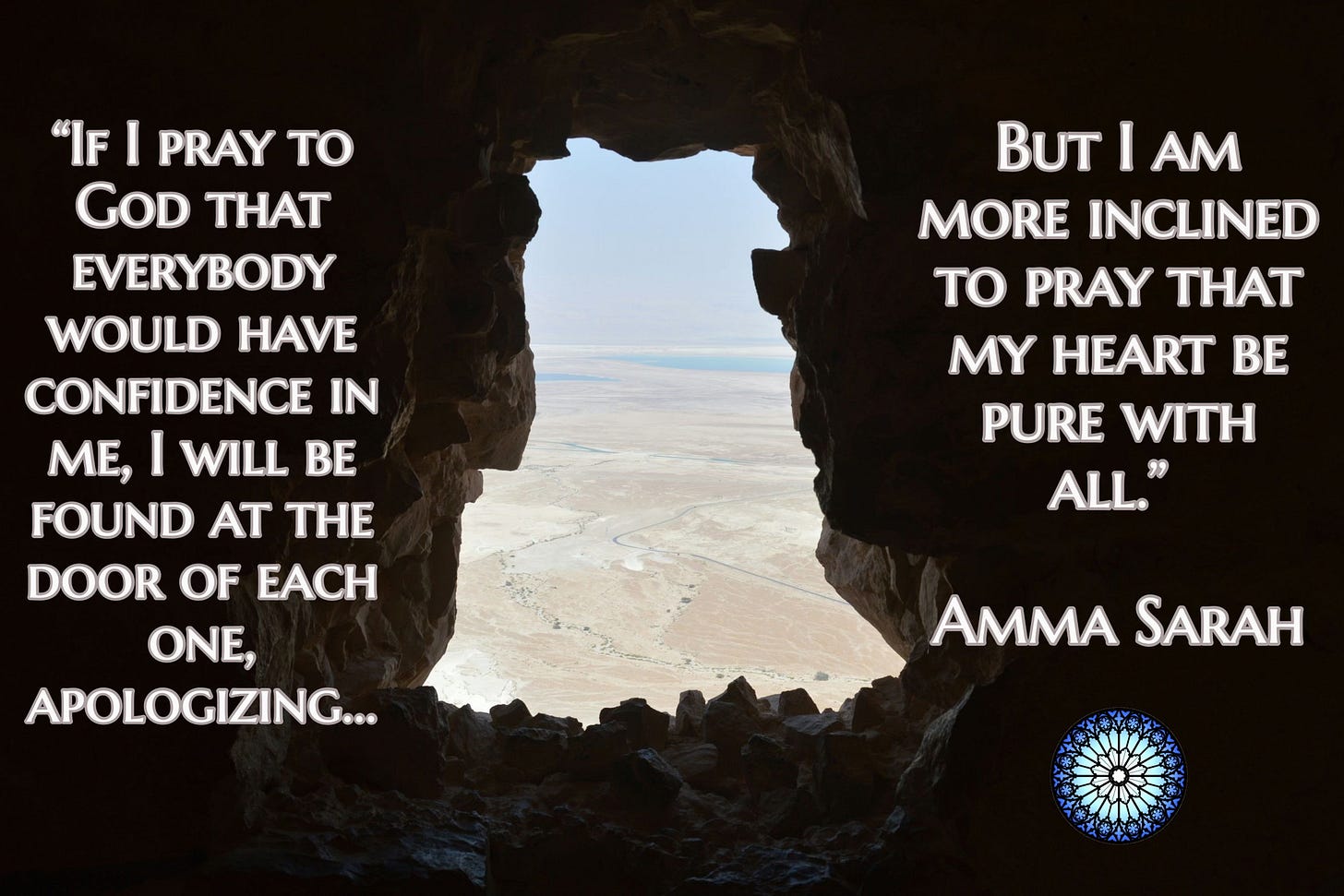A Pure Heart Needs No Apology
Confidence Can Only Come From Within
“If I pray to God that everybody would have confidence in me, I will be found at the door of each one, apologizing. But I am more inclined to pray that my heart be pure with all.” — Amma Sarah
I’ll admit it: I’m a recovering validation-seeker. I’m not sure where I learned it, but by the time I was a young adult I had developed the insecure habit of curry…




